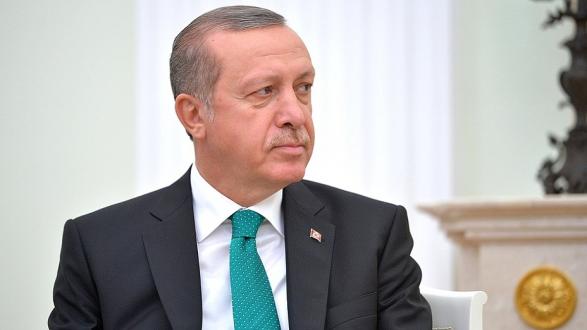Global Beat is your weekly stop for news from around the world. Join us every Friday morning for important stories you should know about.
This week, Erdogan has given himself near absolute power over Turkey in the wake of a failed military coup; a sporting project in the slums of Sao Paulo aims to give hope to rural children; volunteers in India are fighting climate change by planting trees; and more.
____________________
Americas
As Brazil gears up to host next month’s Olympic Games, a community project in one of Sao Paulo’s largest favelas is trying to improve the lives of rural children and their families through sport. Rugby Para Todos, or "Rugby for All," exposes disadvantaged children living in the slum to the game of rugby, an Olympic sport often associated with the wealthy. The program has inspired participants in the city and beyond, with many making it to the national and even Olympic levels of the sport.
Also check out:
- Quinoa isn't a threat to food security. It's improving Peruvian farmers' lives – Alexander Kasterine, The Guardian
Central & South Asia
Over 800,000 volunteers in Uttar Pradesh, a state in India, shattered a world record on July 11 by planting 50 million trees in an effort to help the country combat climate change. The coordinated effort was inspired by the commitments made by India during the recent Paris Climate Conference, where the country vowed to spend billions to reforest 12 percent of its land by the year 2030. The achievement far surpassed the previous record of 847,275 trees planted by Pakistan in 2013.
Also check out:
- An Internet star's murder in Pakistan – Matt Ford, The Atlantic
China & East Asia
Severe air pollution is a growing concern in East Asia, home to some of the world’s largest and busiest ports. According to the World Shipping Council, the majority of the top ten container ports in the world are concentrated in China, Singapore, and South Korea. But as traffic in shipping and cargo increases through the advent of massive container ships, so do greenhouse gases emitted into the atmosphere, causing serious health risks. Environmentalists note that there are very few laws and regulations currently in place to safeguard against this; the Paris Climate Talks in 2015 did not provide any stipulations for limiting shipping emissions.
Also check out:
- South China Sea court ruling puts fish rivalry into spotlight – Jake Maxwell Watts, Wall Street Journal
Europe & Russia
The immediate aftermath of the failed military coup in Turkey against the government of Recep Tayyip Erdogan has witnessed a severe crackdown by the regime on "dissidents" throughout the country. While the United States and other powers have condemned the coup’s challenge to a democratically elected government, leaders around the world are concerned about the harshness of the regime's reaction. On Wednesday, the Turkish President announced a three-month state of emergency, giving his office near absolute power over the country. His regime suspended the European Convention on Human Rights soon after the emergency powers were granted.
Also check out:
- Russia plans to deploy its most advanced missile systems in Crimea next month – Brendan McGarry, Defense Tech
Middle East & North Africa
It has been one year since the historic Joint Comprehensive Plan of Action – otherwise known as the "Iran Deal" – was passed. Over the past twelve months economic sanctions on Iran were lifted by the United States and other permanent members of the UN Security Council, attracting major companies like Boeing to seek investment opportunities in the Iranian economy. Oil exports from Iran have also increased drastically, with 3.8 million barrels being produced each day, up from 2.9 million barrels in January 2016. The International Atomic Energy Agency recently confirmed that Iran’s enrichment program has remained within the limits set by the nuclear agreement.
Also check out:
- Give chickpeas a chance: why hummus unites, and divides, the Mideast – The Kitchen Sisters, NPR
Southeast Asia & Oceania
Singapore and Malaysia agreed this week to build a high-speed rail connection between their two countries. The train, which will link Singapore to Kuala Lumpur in 90 minutes on a 185-mile track, will help deepen relations between the two countries, which have historically been tense. This follows a recent trend in Asia to refurbish and modernize modes of transportation to keep up with burgeoning populations and economies. Last year, India chose Japan over China as partners to develop a high-speed rail project of their own. The Singapore-Malaysia train is set to be completed by 2026.
Also check out:
- Police say they have killed Indonesia's most wanted terrorist – Yenni Kwok, TIME
Sub-Saharan Africa
A giant telescope in South Africa this week discovered 1,300 new galaxies in its first-ever released image. Using over a dozen working antennas, MeerKAT (located in the region of Karoo) detected the galaxies, which were previously thought to be totaling only 70 in number in the area of focus. It is part of a project called the Square Kilometer Array (SKA), dedicated to creating the largest telescope in the Southern Hemisphere through a network of antennas spread across South Africa and Australia. In a press release one of the project’s directors said that MeerKAT "is a significant milestone for South Africa… [The country] is playing a key role in the design and development of SKA." SKA should be operational by 2030.
Also check out:
- Why a hashtag isn't enough for a revolution in Zimbabwe – Blessing-Miles Tendi
Stay informed. We’ll see you here again next week.




